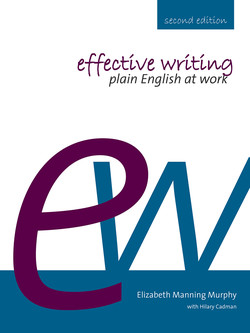Читать книгу Effective Writing - Elizabeth Manning Murphy - Страница 25
На сайте Литреса книга снята с продажи.
3.7 Plurals of nouns
ОглавлениеMost nouns form the plural by adding -s to the singular, as in book/books.
Words ending in o, s, x, ch, sh or z form the plural by adding -es, as in echo/echoes, boss/bosses, box/boxes, church/churches, bush/bushes, buzz/buzzes.
Words ending in y change y to ie and add -s, if the y is preceded by a consonant, as in sky/skies, city/cities. If the y is preceded by a vowel, it simply adds -s, as in monkey/monkeys.
The plural of most words ending in f is -ves, as in loaf/loaves, thief/thieves. Exceptions are roof/roofs, chief/chiefs.
There are many irregular plural endings that cause spelling problems; for example:ox/oxen, child/children, brother/brethren – although brothers is used in most instances these daysdeer/deer, sheep/sheep, fish/fish – though fishes is used for multiple types of fishmouse/mice – though mouses is used for the devices used with a computerplateau/plateaux – though many foreign words have now been anglicised, and this plural can be plateaus; likewise, memorandum/memoranda or memorandumscriterion/criteria seems to be immovable – ‘criterions’ is still not acceptabledatum/data – but data is now used in a singular sense tooagendum/agenda – it is very rare to see the singular used at all; indeed, agendas is now an acceptable plural of agenda in a singular sense, as in ‘We seem to have two agendas for this meeting’.
Use your dictionary if you are not sure.
Note: Do not use the apostrophe s to indicate plural. There is a modern and quite incorrect tendency to write, for example, onion’s to mean more than one onion. Apostrophe s is only ever used for the plural where a final s without an apostrophe would be confusing, as in Dot your is (meaning Dot your i’s).
